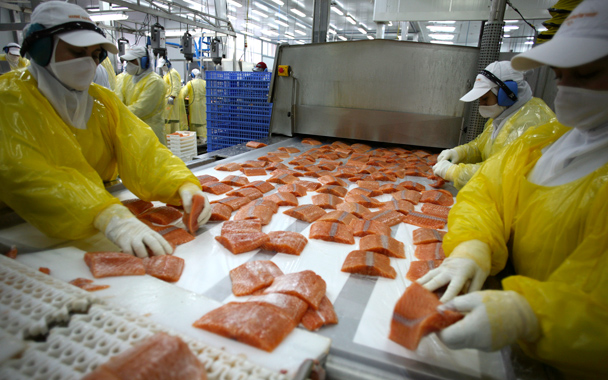When infectious salmon anemia—a disease that kills all animals in infected populations—broke out in salmon farms in Chile last summer, that government’s first reaction was to attempt a cover-up. They barred scientific experts and environmental groups from attending a hastily convened industry conference to address the outbreak.
But eventually the epidemic became so acute that it forced Marine Harvest, Chile’s largest salmon producer, to shut down 14 of its 60 aquaculture facilities, throwing 1,200 of its employees out of work.
Then, in late March, The New York Times ran a detailed story cataloging the extent of the damage. To wit: Chilean salmon are exposed to drugs not allowed in the United States; millions of fish have escaped from farms to become invasive species in Chile’s waters; it takes at least seven pounds of food to produce two pounds of salmon; salmon farms pollute the water and create dead zones on the ocean floor…
But instead of implementing changes that might alleviate the epidemic, such as improving sanitation and reducing crowding in the net pens, SalmonChile, an industry group, launched a newspaper advertising campaign this week aimed at convincing Americans—who consume nearly one third of Chile’s exported farmed salmon—that the fish is “nutritious, safe, and affordable,” as Rodrigo Infante, SalmonChile’s general manager, told Sustainable Food News. He described the ads as an effort to “set the record straight” and “dispel urban legends.”
Chile’s money would be better spent addressing the very serious issues facing its aquaculture industry, not trying to paper them over.




 Pinterest
Pinterest


